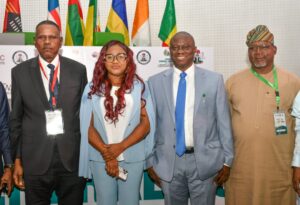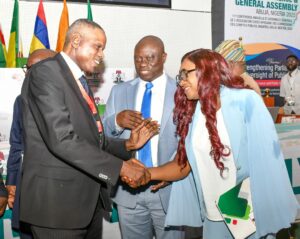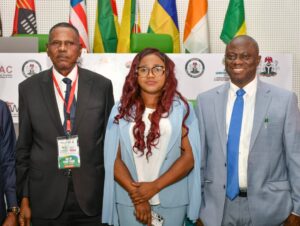The Chairman of the Nigeria Union of Journalists (NUJ), Federal Capital Territory (FCT) Council, Comrade Grace Ike, has called for enhanced collaboration between the media, civil society organizations (CSOs), and parliament to strengthen oversight of Nigeria’s public debt and improve accountability.
Speaking at the 11th Annual Conference and General Assembly of the West Africa Association of Public Accounts Committees (WAAPAC), organised by the House of Representatives Public Accounts Committee on Tuesday, Ike emphasized the media’s role as a critical watchdog in democratic governance.
- De Jong joins Barca sickbay after picking up knock on international duty
- Open Letter to President Bola Tinubu — Abbati Bako
She noted that without the active involvement of journalists, the efforts of parliamentary committees such as the Public Accounts Committee (PAC) may fall short of their intended impact.
“The media acts as an intermediary between parliament, government institutions, and the public. Public awareness is necessary, and how can we achieve this if not through information sharing and capacity building?” she asked.
Ike stressed the need for sustained investment in the training and retraining of journalists, particularly in areas relating to audit processes, public debt, and legislative oversight.



To this end, she proposed regular workshops, roundtables, and joint briefings involving journalists, Supreme Audit Institutions (SAIs), and civil society groups to improve the quality and accuracy of reporting on financial governance.
Commending the Chairman of the House Public Accounts Committee, Hon. Bamidele Salam, for his engagement with the media, Ike maintained that more could still be done to build stronger ties and improve transparency.
She suggested that before the end of the 10th Assembly, a comprehensive training session should be organised for parliamentary correspondents to deepen their technical understanding of public debt and oversight responsibilities.
Highlighting the increasing relevance of investigative and undercover journalism, Ike said journalists must be better equipped to uncover corruption and mismanagement of public funds.
“Investigative journalism is not easy. It requires funding, time, and skills. We need to train journalists who can confidently carry out undercover reporting on public accounts and debt management. This will ensure we provide accurate information, not misinformation, especially now that fake news dominates social media,” she said.
She further urged audit institutions and parliamentary committees to facilitate timely and public access to audit reports and financial data, noting that simplified and transparent information will boost public confidence and accountability.
According to her, both the media and CSOs must work together to launch sensitization campaigns to educate citizens on the implications of public debt and their right to demand accountability from elected officials.
“Most people do not even know they have the right to demand accountability. It is the duty of the media to remind citizens of this right and to hold those in power to their promises,” she added.
Ike also advocated for policy and legislative reforms aimed at strengthening the authority of parliamentary committees in overseeing public debt.
She argued that increased media attention on both the successes and challenges of debt oversight can help spark broader civic engagement and drive institutional reform.
“One thing is to write reports and pass resolutions. Another is implementation. As gatekeepers of information, the media stands ready to work with all relevant stakeholders to ensure citizens are empowered, public resources are protected, and sustainable development is achieved,” she said.
Ike concluded by expressing optimism that continued synergy between the media and the Public Accounts Committee would not only deepen transparency but also help ensure that Nigerians remain informed about how public debt is managed.

